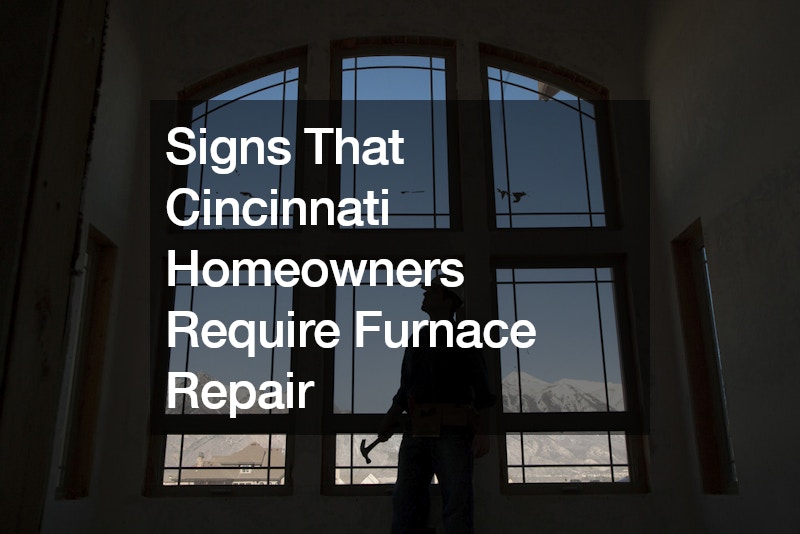As the temperatures drop, Cincinnati homeowners rely heavily on their furnaces to keep their homes warm and comfortable. A well-functioning furnace is essential for maintaining a cozy environment during the cold months. However, like any other appliance, furnaces can develop issues over time. Recognizing the signs that your furnace needs repair can help prevent costly breakdowns and ensure your home remains warm. Here are the key signs that indicate Cincinnati homeowners require furnace repair.
Unusual Noises
One of the most common indicators that a furnace needs attention is the presence of unusual noises. While furnaces are not entirely silent, any new or loud noises such as banging, clanking, or screeching should be cause for concern. These sounds often suggest that there is a mechanical issue or a component that is loose or broken. Ignoring these noises can lead to more significant problems, so it’s important to call a professional for an inspection.
Inconsistent Heating
If you notice that some rooms in your home are warmer than others or that the furnace is not maintaining a consistent temperature, this is a clear sign of a problem. Inconsistent heating can be caused by a variety of issues, including a malfunctioning thermostat, blocked vents, or problems with the furnace’s blower motor. Seeking furnace repair near Cincinnati can help diagnose and fix the issue, ensuring even and reliable heating throughout your home.
Rising Energy Bills
An unexplained increase in your energy bills can indicate that your furnace is not operating efficiently. As furnaces age, they can lose efficiency and require more energy to maintain the desired temperature. Regular maintenance can help keep your furnace running efficiently, but if you notice a sudden spike in your energy costs, it may be time to schedule a repair. A professional technician can identify the root cause of the inefficiency and make the necessary adjustments or repairs.
Frequent Cycling
A furnace that frequently turns on and off, known as short cycling, is another sign of trouble. Short cycling can be caused by various issues, including a dirty air filter, a malfunctioning thermostat, or an oversized furnace. Not only does this put extra strain on the system, but it can also lead to higher energy bills and reduced comfort. Addressing this issue promptly with the help of experts in furnace repair near Cincinnati can prevent further damage and extend the life of your furnace.
Yellow Pilot Light
The color of your furnace’s pilot light can provide important clues about its condition. A healthy pilot light should be blue, indicating that the gas is burning efficiently. If the pilot light is yellow or any other color, it could signal a problem with the gas supply or indicate that the burner is not working correctly. A yellow pilot light can also be a sign of carbon monoxide buildup, which is extremely dangerous. If you notice a yellow pilot light, contact a furnace repair technician immediately to ensure your safety.
Unpleasant Odors
Furnaces should not emit any noticeable odors when they are functioning properly. If you detect a burning smell or any other unusual odors coming from your furnace, it could be a sign of an electrical issue or a problem with the fuel system. In some cases, the smell could be due to dust burning off after a period of disuse, but if the odor persists, it is best to have a professional inspect your furnace to rule out any serious issues.
Poor Air Quality

A malfunctioning furnace can negatively impact the air quality in your home. If you or your family members are experiencing more frequent respiratory issues, allergies, or dry skin, your furnace may be to blame. Furnaces can circulate dust, mold, and other allergens if they are not properly maintained. Regular filter changes and furnace maintenance can improve air quality, but if problems persist, a repair may be necessary to address underlying issues.
Furnace Age
Lastly, the age of your furnace can be a good indicator of when it might need repairs. Most furnaces have a lifespan of 15-20 years. If your furnace is approaching or exceeding this age, it is more likely to develop problems and require repairs. Regular maintenance can help extend the life of your furnace, but being aware of its age can help you anticipate and address issues before they become major problems.

